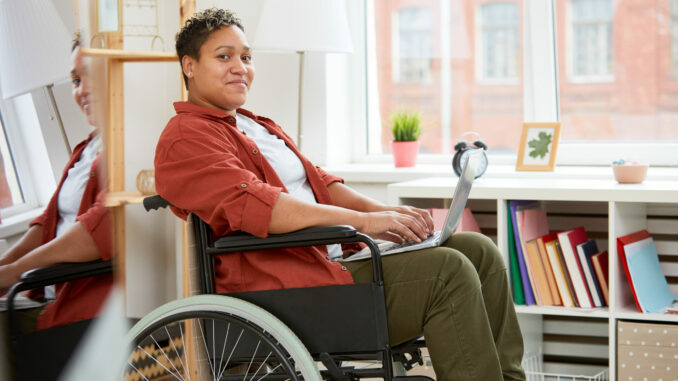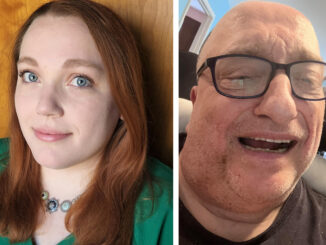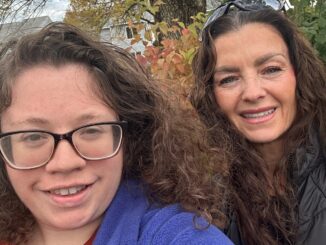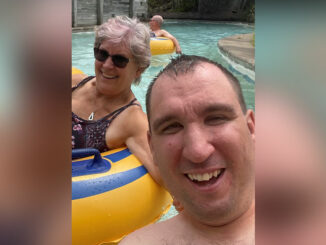
NYS CDD helps people with developmental disabilities live as independently as possible
by Gail Allyn Short
Historically, people with developmental disabilities (DD) were sometimes sent to live in institutions, away from society. Conditions in these institutions were often bleak, with some residents experiencing inhumane treatment.
On May 5, 1975, then-New York Gov. Hugh Carey signed the Willowbrook Consent Decree, which mandated the state protect people with DD from abuse and have them live in the “least restrictive and most normal living conditions possible.” This philosophy has gained more momentum in the ensuing decades, with advocates pushing for people with DD to live as independently as possible.
“We know from data that the quality of life for people living more independently is better,” says Jacqueline Hayes, Diversity and Inclusion Program Specialist for the New York State Council on Developmental Disabilities (NYS CDD). “They have a lot more control over their day-to-day, where they go, who they’re with and even what food they eat.”
“We know from data that the quality of life for people living more independently is better. They have a lot more control over their day-to-day, where they go, who they’re with and even what food they eat.”
Jacqueline Hayes, Diversity and Inclusion Program Specialist for the New York State Council on Developmental Disabilities
However, finding housing can be challenging for anyone, and people with DD face their own unique barriers. Factors such as family concerns over safety, lack of financing, and/or unawareness of housing options keeps many people with DD living in certified settings, like a group home or with their family, Hayes explains.
The NYS CDD is on a mission to give these adults the chance to live how and where they want. To help, the organization works with community partners around the State to create housing solutions that promote self-determination and inclusion in community life. The NYS CDD is a federally funded state agency. Council members are appointed by the Governor and include individuals with DD and family members of people with DD.
One such effort involves a five-year grant issued in 2019 to the NY Alliance for Inclusion and Innovation, which manages the Housing Resource Center for people with DD.
The HRC hosts a Housing Navigator program to train navigators who can help people identify and obtain the housing they want that best suits their individual needs and circumstances. The grant allows the HRC to train five Master Housing Navigators (MHN), says HRC Co-Director John Maltby. These Master Housing Navigators work closely with people with DD to identify where they would like to live, whether they want a roommate or not and what in-home supports they need. Navigators also help people create a budget based on their income from SSI benefits, employment or other sources.
“We know people with DD who live in co-ops and condos,” Maltby says. He notes others live in single-family homes, some with support from Section 8 vouchers and public housing. Some live alone with help from assistive technology and nursing care.
“We know people who are completely self-directing, meaning that they have very little outside support, and there are people who have 24-hour-a-day, seven-days-a-week support,” Maltby says.
Following the MHN pilot, the NY Alliance and the NYS CDD reported that nearly 30 people successfully transitioned into housing with the support of the Master Housing Navigators, with 11 others on housing waiting lists or close to obtaining housing.
“We saw one of the Master Housing Navigators in Long Island who pulled together local officials, housing developers and people with disabilities advocacy groups to develop a new housing project,” Hayes says, explaining the Long Island project sets aside several apartment units for people with developmental disabilities.
“They’re in the community, and they’re in a building where there are people without disabilities. So, it’s a more integrated housing project,” she says.
The NYS CDD also awarded a three-year, $450,000 grant in 2021 to the Westchester Institute for Human Development to support enabling and assistive technology for people living where they want. Meanwhile, another $720,000 NYS CDD grant is supporting a three-year project aimed to enhance the New York Alliance for Innovation and Inclusion’s Housing Resource Center. The project involves creating an online hub of informational resources focused on living independently in non-certified housing.
“When government with advocates and nonprofits come together to create solutions,” says Hayes, “things can change.”
For more information about the New York State Council on Developmental Disabilities, go to https://cdd.ny.gov/. This program is supported by funding from the U.S. Department of Health and Human Services Administration for Community Living.



